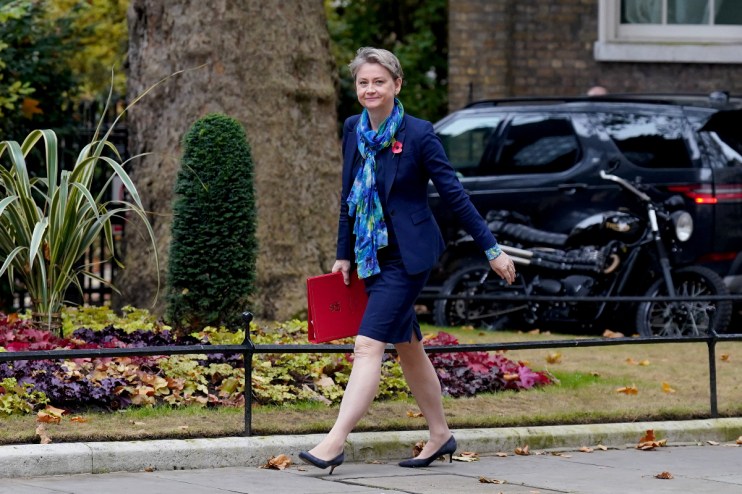Home secretary criticised for not saying when small boat crossings will fall

The home secretary has been criticised for not saying when small boat crossings will fall.
Yvette Cooper has insisted the government has a moral responsibility to tackle the crisis, but refused to say when the number of people arriving across the English Channel will decline.
The Labour minister was criticised by her Tory opponent for what he called having “effectively given up on protecting our borders”.
Conservative shadow home secretary Chris Philp said: “It is revealing that stopping illegal immigration isn’t even one of Keir Starmer’s six milestones, and their lack of a deterrent has led to small boat crossings going up by 18 per cent since the election.”
He told Sky News: “Law enforcement alone is not enough and that’s why it was so foolish for Labour to scrap that Rwanda deterrent before it even started.”
Speaking to the BBC’s Sunday With Laura Kuenssberg, Cooper said she wanted numbers to fall sharply but did not set a deadline, adding: “Of course we want to see the boat crossings come down as rapidly as possible. What we’re not going to do is deal with this by slogans.”
‘Moral responsibility’
She added: “There is a history of home secretaries and prime ministers making grand promises but never actually having a proper plan.”
But Philp criticised her position after Labour scrapped the Rwanda deportation plan, adding: “Shockingly Labour now can’t even tell the public when these numbers will fall.
“As they struggle to answer simple questions the British people are paying millions a day to house illegal asylum seekers in hotels – all because Labour scrapped our deterrent.”
On a visit to Italy, Cooper argued there was a “moral responsibility” for the UK government “to go after those gangs who are putting lives at risk”.
She described the “flimsy boats” and how “women and kids who get put in the middle of the boats, so when the boat folds, they are the people who get crushed, who end up drowning”.
It came after last Thursday proved to be the busiest December day ever for small boat crossings, with Home Office data showing 609 people arriving, after some 34,880 people have arrived in the crafts over the English Channel this year – 20 per cent higher than 2023.
Migration statistics
While legal migration remains high, with total long-term net migration provisionally estimated at 728,000 up to the end of June 2024, via the Office for National Statistics (ONS).
However, human rights campaigners have warned that despite the government announcing it has deported almost 13,500 people since coming to power, it could be putting lives at risk.
The Observer reported this month that enforced returns had risen by 25 per cent between July and December compared to 2023 – while campaigners warned some people “have been unable to access legal representation, nor the medical and expert evidence needed to properly present their case, meaning some may face real risk on forced return”.
It comes as the Home Office confirmed a new cross-government unit would launch in a bid to bolster security after Cooper’s Rome trip to discuss migration with her Italian counterpart.
Boat crossing numbers are still lower than the record high in 2022, but Cooper admitted it would be “no comfort” to the public if numbers continued to remain at high levels – as she refused to rule out using a third country to process UK asylum applications.
Conservative leader Kemi Badenoch criticised the government for “pretending they’re tough on immigration”, on Camilla Tominey’s GB News show.
Badenoch said: “I’m not going to run away from the subject of immigration. I never have. Labour are pretending that they’re tough on immigration, when actually they stopped us from doing quite a lot of things.”
